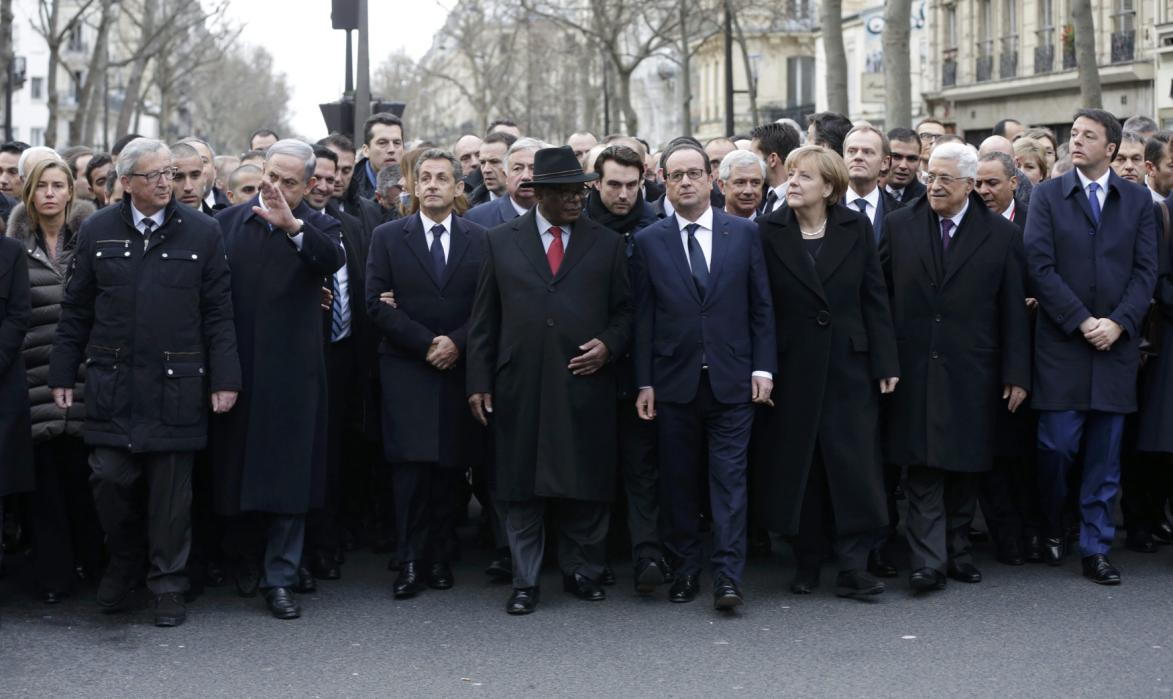The views expressed in our content reflect individual perspectives and do not represent the authoritative views of the Baha'i Faith.
The Baha’i Faith focuses on unity.
We know from many of Baha’u’llah’s statements that he wanted very much to bring about the reconciliation of peoples, of nations and of religions:
It is incumbent upon all the peoples of the world to reconcile their differences, and, with perfect unity and peace, abide beneath the shadow of the Tree of His care and loving-kindness.
Consort with the followers of all religions in a spirit of friendliness and fellowship. Whatsoever hath led the children of men to shun one another, and hath caused dissensions and divisions amongst them, hath, through the revelation of these words, been nullified and abolished.
Our hope is that the world’s religious leaders and the rulers thereof will unitedly arise for the reformation of this age and the rehabilitation of its fortunes. Let them, after meditating on its needs, take counsel together and, through anxious and full deliberation, administer to a diseased and sorely-afflicted world the remedy it requireth….
O contending peoples and kindreds of the earth! Set your faces towards unity, and let the radiance of its light shine upon you. Gather ye together, and for the sake of God resolve to root out whatever is the source of contention amongst you. Then will the effulgence of the world’s great Luminary envelop the whole earth, and its inhabitants become the citizens of one city, and the occupants of one and the same throne. This wronged One hath, ever since the early days of His life, cherished none other desire but this, and will continue to entertain no wish except this wish. There can be no doubt whatever that the peoples of the world, of whatever race or religion, derive their inspiration from one heavenly Source, and are the subjects of one God. The difference between the ordinances under which they abide should be attributed to the varying requirements and exigencies of the age in which they were revealed. All of them, except a few which are the outcome of human perversity, were ordained of God, and are a reflection of His Will and Purpose. Arise and, armed with the power of faith, shatter to pieces the gods of your vain imaginings, the sowers of dissension amongst you. Cleave unto that which draweth you together and uniteth you. This, verily, is the most exalted Word which the Mother Book hath sent down and revealed unto you. To this beareth witness the Tongue of Grandeur from His habitation of glory. – Gleanings from the Writings of Baha’u’llah, pp. 6; 94; 216; 217-218.
But what methods did Baha’u’llah employ in order to bring about this reconciliation of religions?
His treatment of Judaism, of Christianity and of Islam is very unorthodox in many of its features, all for the purpose of reconciling these religions and harmonizing them in his own religious teachings. In the case of Judaism, Baha’u’llah cited passages from the Hebrew Scriptures, including from the Psalms, Amos, Joel, Isaiah, and Jeremiah, in his last book, the Epistle to the Son of the Wolf–thereby affirming the authenticity of these prophetic books, their divine origins, and the truth of their prophecies. This is stunning in itself, considering that most Muslims of the time rejected the Torah as accurately reflecting the revelation of God to the Hebrew prophets. Furthermore, Muslims were not familiar with most of the books cited here, as only David, the presumed author of many of the Psalms, is even mentioned by name in their holy book, the Qur’an.
Baha’u’llah reconciles religions by asking their followers to recognize subsequent prophets of God. In the gospels, Jesus is described as a descendant of King David; likewise, in the Babi and Baha’i Writings, Siyyid ‘Ali Muhammad the Bab is called a descendant of Muhammad. In the following passage, Baha’u’llah compares the Muslim rejection of the Bab with the Jewish rejection of Jesus:
Be fair in your judgment. Did they whom you curse, upon whom ye invoke evil, act differently from yourselves? Have they not slain the descendant of their Prophet as ye have slain the descendant of your own? Is not your conduct similar to their conduct? Wherefore, then, claim ye to be different from them, O ye sowers of dissension amongst men? – ibid, p. 222.
Baha’u’llah criticized the Jewish rejection of Jesus, while always contextualizing it to hold Christians accountable for having rejected Muhammad, and Muslims accountable for having rejected the Bab.
This remarkable and revolutionary approach to religion, as a continuing cycle of linked revelations rather than a competing jumble of disparate beliefs, asks everyone, no matter what their Faith, to recognize and honor other Faiths.

















Comments
Sign in or create an account
Continue with Googleor